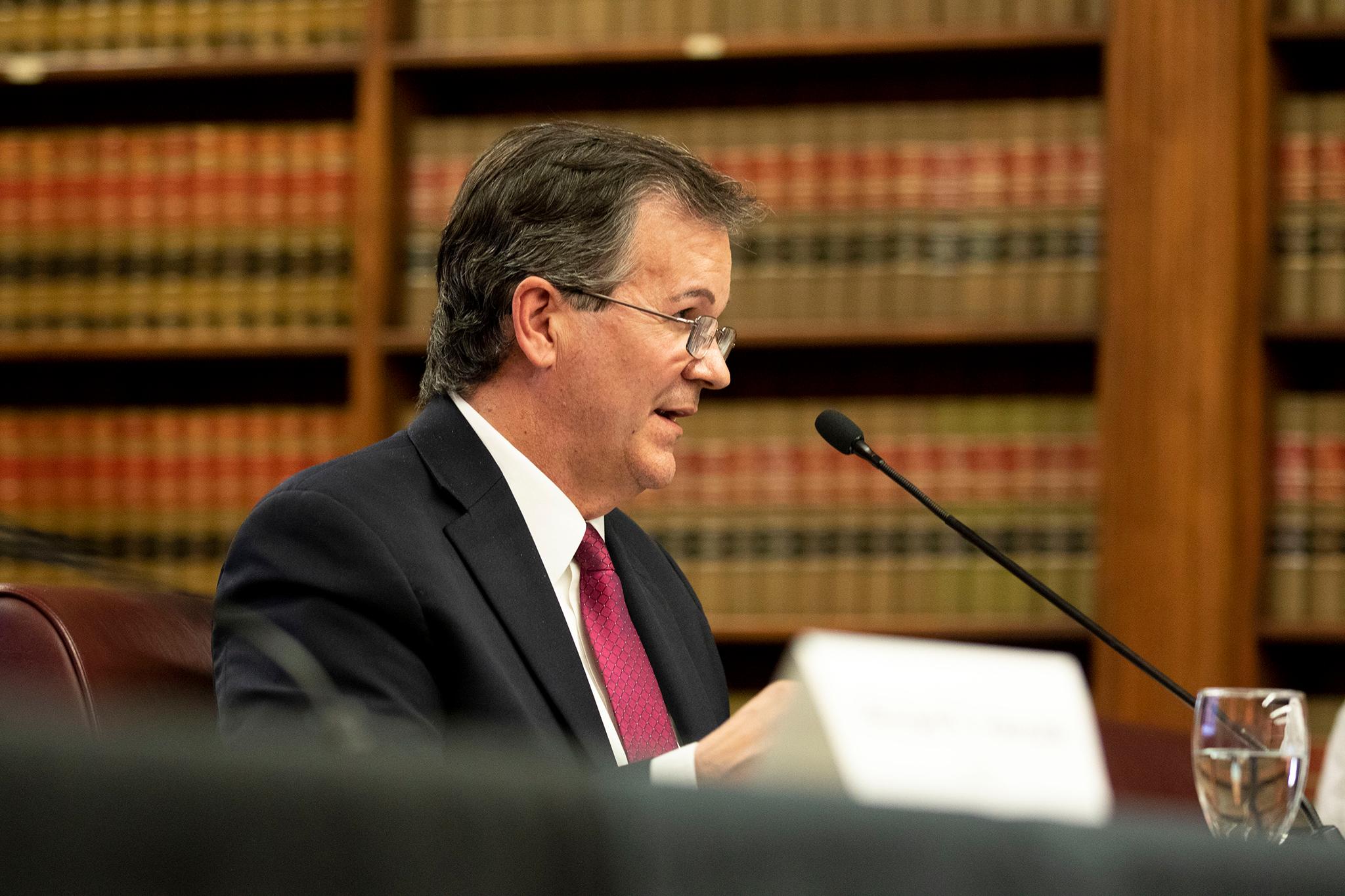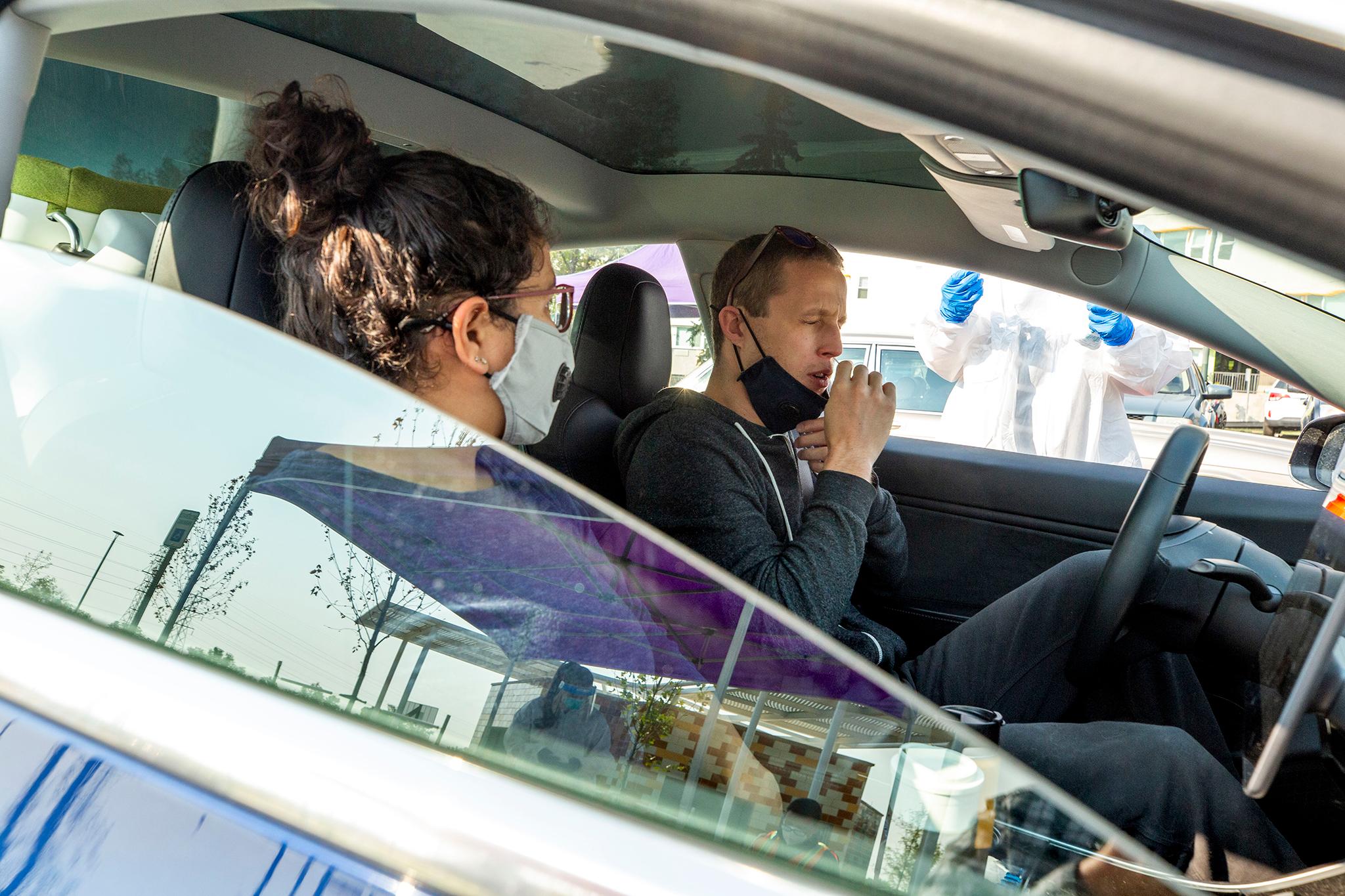Mayor Michael Hancock on Monday warned coronavirus cases in Denver are growing and have reached levels not seen since the spring, which could lead to more restrictions for local businesses if the trend continues.
Data compiled by Denver Public Health shows the city's seven-day case average is 127.3, which is higher than the peak of 126.3 cases on April 29, at the onset of the pandemic. College students are still contributing to the spike in cases, Hancock said, while city public health executive director Bob McDonald said people aren't physically distancing as much as they used to.
Hospitalization rates in Denver have increased over the past several weeks. The city said its seven-day average of hospitalizations is 174, up from 126.6 during the week of Oct. 3. That's a 37.5 percent increase. Hancock called this "concerning."
The mayor said the city's positivity rate has increased over the last few weeks and sits between 4 and 4.5 percent. Hancock said if that rate gets greater than 5 percent, the recommended rate for reopening set by the World Health Organization, it would mean "a great deal of trouble" for Denver.
"We've reached a fork in the road," Hancock said.
Both Hancock and McDonald made it clear that if cases go up, it could mean limiting capacity at places like hair salons, restaurants, office settings and other local retailers.
They said that could lead to lost jobs and a severe economic downturn. The city didn't detail any new restrictions or issue new public health orders Monday, though McDonald said Denver would be "implementing more public health controls" soon. A spokesperson for the city's public health department said these health controls will be issued next week.
Right now, the city is at "Level 2," or the safer-at-home level set by the state, which allows for fewer restrictions. But if it were to move to "Level 3," it would mean scaling back on reopening efforts and limiting capacity at local businesses.

Hancock and McDonald have been issuing the same advice for months: Wear a face mask and avoid hanging out in large groups. They're also encouraging people to get their flu shot; Hancock said he was getting his shot on Monday at a Walgreens.
"We all could have to stay home if numbers keep going in the same direction," McDonald said. He said that when he goes out to each, about two to three times a week, he wears a face covering, taking it off once he sits down to eat and putting it back on once he leaves.
McDonald discouraged Halloween parties. He said to hang out with family or people you live with.
Since the city said last month that college-aged people were driving a spike in cases, cases on college campuses in the city have increased. The initial spike prompted the city to create new public health orders for local colleges on Sept. 24. McDonald said there have been some cases of non-compliance among sororities and fraternities.
State data shows there are active COVID-19 outbreaks at Metro State University, Regis University and the University of Denver. The latest available data, released last Wednesday, showed DU had 72 lab-confirmed cases, Regis had 56 and Metro had 12. The outbreaks listed at DU include sororities and fraternities. McDonald said some greek life houses have been closed since they weren't complying with public health orders.
Denver Superintendent Susana Cordova also provided a brief update on Denver Public Schools and their reopening efforts. Cordova said the district wants to reopen all its elementary schools for full in-person instruction by next week. Cordova said the district is assessing how it could provide in-person learning for its middle schools and high schools. Cordova said the district will launch a dashboard with information about COVID-19 at district schools.












